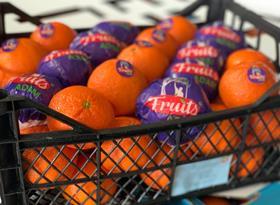
Turkish exporter MDA Agricultural Products is continuing its efforts to guarantee the highest quality standards when it comes to freshness, according to its owner Mustafa Arslan. That includes providing training to its growers courtesy of agronomists and agricultural engineers, and ensuring compliance with EU pesticide regulations.
“The Turkish government and all Turkish farmers, exporters, agronomists and engineers are working together with great dedication to ensure this,” says Arslan.
Last autumn, due to the Covid-19 crisis and the subsequent closure of hotels and restaurants, as well as the negative effect on tourism, business for many Turkish fresh produce companies proved tough.
“We experienced problems selling not just lemons, but all kinds of citrus,” reveals Arslan. “This was the worst season we have ever faced. The Balkans, Europe and East Asia have all seen the same drop in consumption, so they are importing less than in previous years. If the Covid-19 crisis continues, we will consider closing our packhouse next season, because the losses will be less.”
The impact on the Turkish economy has been severe, with all companies suffering from high inflation and fluctuating exchange rates. “We have seen big increases in all costs – for packaging, labour, transportation, energy, water – and we are unable to increase our prices due to a lack of demand in many markets,” says Arslan. “Labour is becoming a huge problem because the Turkish population is very young, and they don’t want to work on the harvest. We are reliant on workers from Syria who lack experience, resulting in quality problems.”
The economic situation is also affecting companies’ ability to make the necessary investments with regard to sustainability. “We are constantly trying to improve, concerning our packaging for example, but it is not easy given the economic crisis,” says Arslan. “We are unable to look for new solutions. Already the cost of plastic and cardboard boxes has increased a lot compared with last season. In just over half a year, the price of a cardboard box is up by around 50 per cent.”
And unfortunately the effects of a worsening climate are already noticeable, he says. “When the fruits needed water, the weather was extremely hot with no rain; when they needed sunny weather, the rain started and didn’t stop,” laments Arslan. “In April, we had a lot of rain, but in September to December, no rain at all. The result is that the fruits don’t grow enough, so sizes are smaller and production down. In some areas, calibres are bigger, but they are less juicy. We are certainly facing more climatic problems than in previous years. We are trying to adapt and find renewable solutions when it comes to energy, irrigation and production.”



